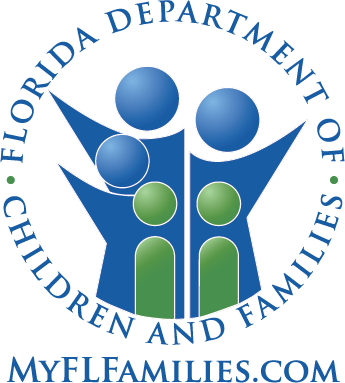Love has a powerful pull, and for some individuals, it can become an addictive force that dominates their lives. Relationship addiction, also known as love addiction, is a process addiction that shares striking similarities with drug addiction. Like substance addictions, relationship addiction involves compulsive behaviors that can have adverse effects on a person’s well-being. Research shows that the brain chemistry during the intense early stages of love resembles the chemical pathways seen in Obsessive-Compulsive Disorder (OCD), leading to feelings of obsession and dependency. However, unlike the initial infatuation that naturally levels out in healthier relationships, a properly addictive relationship can spiral into dangerous territory, causing individuals to lose sight of their identities and well-being.
Recognizing the parallels between relationship addiction and drug addiction is essential in understanding the severity of this issue. People with relationship addiction may find themselves unable to function without a romantic partner, prioritizing their partner’s needs over their own, and experiencing panic and anxiety at the thought of ending the relationship. Such behaviors are characteristic of the intense cravings seen in drug addiction.
Just like other forms of addiction, relationship addiction can disrupt one’s sense of self and lead to neglect of personal needs and boundaries. People with this condition may feel incomplete or unhappy without a partner, seeking constant validation and attention to fill emotional voids. The longing for love and intimacy becomes all-consuming, and the fear of being alone or abandoned drives their behavior.
Relationship Addiction: Symptoms and Negative Effects
Relationship addiction can manifest in various ways, including:
- Inability to leave a relationship despite red flags and toxicity.
- Quick commitment to new relationships without considering compatibility.
- Feelings of panic and anxiety at the thought of ending the relationship.
- Avoidance of being single, jumping from one relationship to another.
- Relying on sex to resolve conflicts or emotional issues within the relationship.
- Neglecting personal interests and hobbies for the sake of the partner.
- Excessive neediness and dependency on the partner for emotional stability.
- Self-blame and denial of partner’s flaws, even in unhealthy relationships.
- Feelings of unloved, anxious, or depressed when not in a relationship.
- Codependency, where one’s identity becomes entwined with the partner’s.
It’s essential to differentiate between healthy attachment and relationship addiction. While love can evoke intense emotions, it should not lead to an unhealthy level of dependency or interfere with personal growth and well-being. Understanding the distinction is crucial for identifying signs of relationship addiction.
A review article from 2021, published in Frontiers in Psychology, discusses the proximate and ultimate perspectives on romantic love. It suggests that the emotional turmoil experienced during romantic rejection can be similar to the withdrawal phase seen in addiction.
What Does It Mean to Be an Addictive Person?
Having an addictive personality can make individuals more susceptible to relationship addiction. Those with addictive personalities often struggle to control their actions and establish healthy boundaries, leading them to seek happiness and fulfillment through relationships.
The upbringing and environment also play a role in relationship addiction. People raised in loving and understanding environments are less likely to engage in unhealthy relationships, as they associate love with security and comfort. On the other hand, individuals from neglected backgrounds may find it challenging to break free from toxic relationships, considering constant anxiety as normal.
Rejection can also trigger relationship addiction, as studies have shown that it activates the same brain areas associated with drug cravings. For those experiencing rejection in toxic relationships, relationship addiction may develop as a coping mechanism.
Is There Treatment for Relationship Addiction?
Treating relationship addiction can be challenging, especially when rooted in unresolved trauma. Seeking therapy is crucial for identifying underlying issues and addressing thought patterns. Therapists help individuals develop healthier relationships by setting boundaries and managing the desire for the “high” experienced in new relationships. Through therapy, individuals can achieve a healthier balance and obtain the love they desire without becoming overly dependent on their partners.
Relationship / Process Addiction: What You Need to Know
In addition to substance addictions, there is another category of addictive behaviors known as process addictions. Process addictions also referred to as behavioral addictions, involve compulsive engagement in specific activities or behaviors, resulting in negative consequences on one’s life.
One common form of process addiction is relationship addiction, which we discussed earlier. However, process addictions can extend to various activities, and some of the most prevalent ones include:
- Gambling Addiction: Excessive gambling, whether in casinos, online platforms, or betting, can become a destructive process addiction. The thrill of risking money and the potential for big wins can lead individuals to engage in gambling compulsively, disregarding financial and social repercussions.
- Internet and Technology Addiction: In today’s digital age, excessive use of the internet, social media, and technology has become a widespread issue. Individuals may spend excessive hours on their smartphones, computers, or gaming consoles, neglecting other essential aspects of life.
- Sex and Pornography Addiction: An unhealthy preoccupation with sexual activities or pornography can develop into a process addiction. Compulsive sexual behavior or excessive consumption of explicit content can lead to relationship problems, legal issues, and negative impacts on mental health.
- Food Addiction: Food can become an addiction when individuals turn to eating for comfort or escape from emotional distress. Overeating or indulging in specific types of food can lead to obesity, health problems, and a cycle of guilt and shame.
- Shopping and Spending Addiction: Compulsive shopping or excessive spending can create financial difficulties and strain personal relationships. The temporary rush of pleasure from making purchases becomes a cycle that is challenging to break.
- Exercise Addiction: While exercise is essential for a healthy lifestyle, some individuals become addicted to intense physical activities. Over-exercising can lead to physical injuries, exhaustion, and an unhealthy obsession with body image.
Process addictions share similarities with substance addictions, such as the development of tolerance and withdrawal symptoms. People with process addictions may experience an intense craving for the activity and feel unable to control their impulses.
Get Help For Relationship / Process Addictions
Effective treatment for process addictions typically involves therapy and counseling. Therapists work with individuals to identify triggers, address underlying emotional issues, and develop healthier coping mechanisms. Cognitive-behavioral therapy (CBT) and support groups can be particularly beneficial in addressing process addictions.
Recognizing the signs of process addiction and seeking professional help are essential steps toward breaking free from these compulsive behaviors and regaining control over one’s life. With the right support and intervention, individuals can achieve healthier habits and a more balanced approach to life’s activities.




